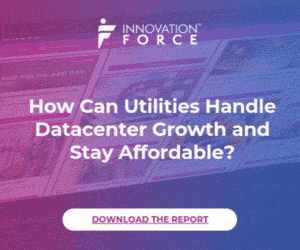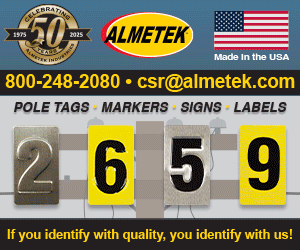Electric vehicle (EV) adoption in the U.S. has lagged, accounting for only 1% of the 250 million vehicles on the road. To put it into perspective, Norway has reached 78% EV adoption (92% when adding hybrids and plug-in hybrids). While U.S. EV purchases doubled last year, there's still a long way to go to reach the level of adoption seen in other countries. However, the U.S. has an opportunity to get ahead of the pressing issues facing countries with high EV adoption rates, which will undoubtedly need to be solved as U.S. adoption increases.
Take China, for example. According to Bloomberg, it was the most significant early adopter of EVs and is currently the world's leader with 40% of the global market share, which reached 20 million this year. It's also facing a tremendous challenge in reusing and recycling batteries, which ever-increasing sales of new EVs will only exacerbate.
Battery recycling is no easy task. EVs are typically powered by lithium-ion batteries, which have a lifespan between 10 to 15 years, depending on environmental conditions and how they're maintained. EV manufacturers typically offer an 8-year warranty, meaning most EV owners will be responsible for battery replacement once it reaches its end of life for powering vehicles.
Giving a second life to EV batteries
Fortunately, companies are already developing innovative solutions. Positive Energy, for example, is a Quebec-based organization recovering and reconditioning end-of-life EV batteries. Taking these EV batteries, they reuse them in renewable energy applications across residential and commercial projects. Recognizing that end of life does not mean the definitive "end of life" for the battery, the company understands that energy accumulators are still useful in storing electricity and redistributing energy as a service.
To understand how EV batteries can be repurposed, let's take the Tesla Powerwall2 as an example. It holds 12.2kWh of usable capacity with an additional 10% as a reserve. The least expensive Tesla models have 60kWh, the smallest capacity battery in their fleet. If you calculate that after 10 years, the battery still maintains 50% capacity, there's still enough power for 2.5 power walls. After 15 years, there's more than enough capacity for a 15kWh single Powerwall. And the average powerwall currently lasts between 10 and 20 years.
Now factor in repurposed batteries, assuming they are on the lower side of lifespan. There is still a potential three decades of use, depending on how much it's utilized. If half of all vehicles sold in the U.S. are EVs by 2030, and roughly 17 million new vehicles are sold each year, by 2040, 8.5 million batteries could be repurposed to power homes or businesses. And that's not factoring in the 15 million that will be on the road by 2030, adding millions more batteries that can be reused.
Leaning on AI to make second life a reality
However, to make this viable, companies will need to analyze different data sets in real time to make accurate predictions to determine the status of their battery fleet. This process is intensive if done manually, as these data points must be processed after every charge or discharge cycle, considering factors like temperature, charge and discharge rate.
Forward-thinking enterprises are utilizing artificial intelligence (AI) and machine learning (ML) to accelerate the process, eliminate human error and reduce costs. Through continuous training, AI can spot patterns and make far more accurate predictions and decisions. For example, with historical data sets across an entire fleet of EV batteries, real-time insights unlock information from maintenance cycles to forecasting how much life a battery has left.
In California, the largest U.S. EV market, the government created the Lithium-ion Car Battery Recycling Advisory Group in 2019 to advise the legislature on policies about the recovery and recycling of lithium-ion vehicle batteries. Led by the California Environmental Protection Agency (CalEPA), the Department of Toxic Substances Control (DTSC) and the Department for Resources Recycling and Recovery (CalRecycle), it completed policy recommendations in its Lithium-ion Car Battery Recycling Advisory Group Final Report in May 2022, intending to "restore, protect and enhance the environment to ensure public health, environmental quality and economic vitality." The report includes two policy proposals. The first policy defines responsibility for out-of-warranty batteries under three possible circumstances. The other policy proposal is a "producer take-back policy." This makes the auto manufacturer responsible for ensuring "repurposing, reuse or recycling of EV batteries by a licensed facility at no cost to the consumer if and when the owner no longer wants them, and in the event no other entity has taken possession of the battery." Manufacturers must also provide consumers and the service and repair industry with educational materials explaining the return process.
While EV adoption in the U.S. is still relatively low, it is nonetheless on an upward trajectory. According to the U.S. Energy Information Administration, plug-in hybrid and EV sales increased in recent months, particularly in the fourth quarter of 2021. Data from Wards Intelligence indicates that 11% of light-duty vehicle sales were EVs and hybrids. Experts speculate that this is largely due to more offerings from manufacturers.
With Federal tax credits and new policies to incentivize consumers to shift to electric, the U.S. is likely to see a significant uptick in EV adoption over the next decade. This gives future-focused companies the unique opportunity to develop innovative solutions for battery recycling and reuse to get ahead of these industry challenges.
 Sean McEvoy is a seasoned software executive with years of experience in the software industry working at such companies as IBM, DELL, Quest Software and Symantec.
Sean McEvoy is a seasoned software executive with years of experience in the software industry working at such companies as IBM, DELL, Quest Software and Symantec.
McEvoy has held executive leadership positions across an array of business units including customer success, sales, professional services, product management, engineering and channel development. Having lived outside the U.S. in both Europe and Asia, Sean has a strong understanding of international markets.
In his current role as senior vice president at Veritone Inc., McEvoy is responsible for business development for Veritone's Artificial Intelligence platform. McEvoy holds a BSc. in software engineering and an MBA in international business.







